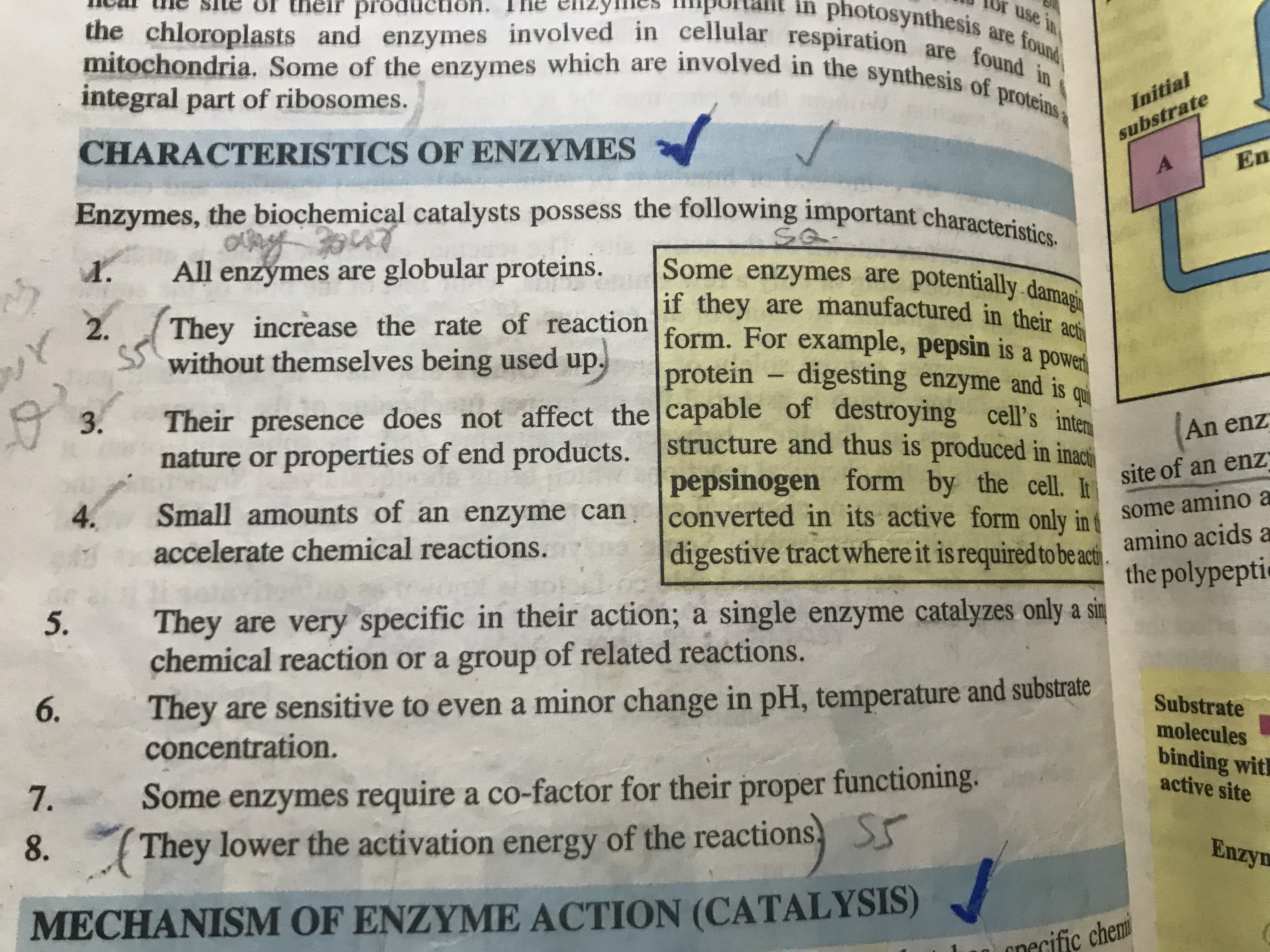What are the characteristics of enzymes and how do they act as catalysts?

Understand the Problem
The question is asking for the characteristics and mechanisms of enzyme action, focusing on their properties and how they function as catalysts in biochemical reactions.
Answer
The characteristics of enzymes include increasing reaction rates, specificity, sensitivity to environmental conditions, and lowering activation energy.
The characteristics of enzymes include being globular proteins, increasing reaction rates without being consumed, not altering end products, sensitivity to environmental factors, specificity for reactions, and lowering activation energy.
Answer for screen readers
The characteristics of enzymes include being globular proteins, increasing reaction rates without being consumed, not altering end products, sensitivity to environmental factors, specificity for reactions, and lowering activation energy.
More Information
Enzymes are sensitive to changes in their environment and can become denatured if conditions are not optimal. This unique property ensures that reactions occur efficiently and specifically only under the right conditions.
Tips
Be aware that even minor deviations in pH or temperature can seriously affect enzyme activity. Understanding the specificity of enzyme action is key to grasping how only certain substrates fit an enzyme's active site.
Sources
- Enzyme Catalyst - Definition, Characteristics, Types, Catalysis - byjus.com
- Enzymes and the active site (article) - khanacademy.org
- Characteristics Of Enzyme Catalysis | Infinita Biotech - infinitabiotech.com
AI-generated content may contain errors. Please verify critical information